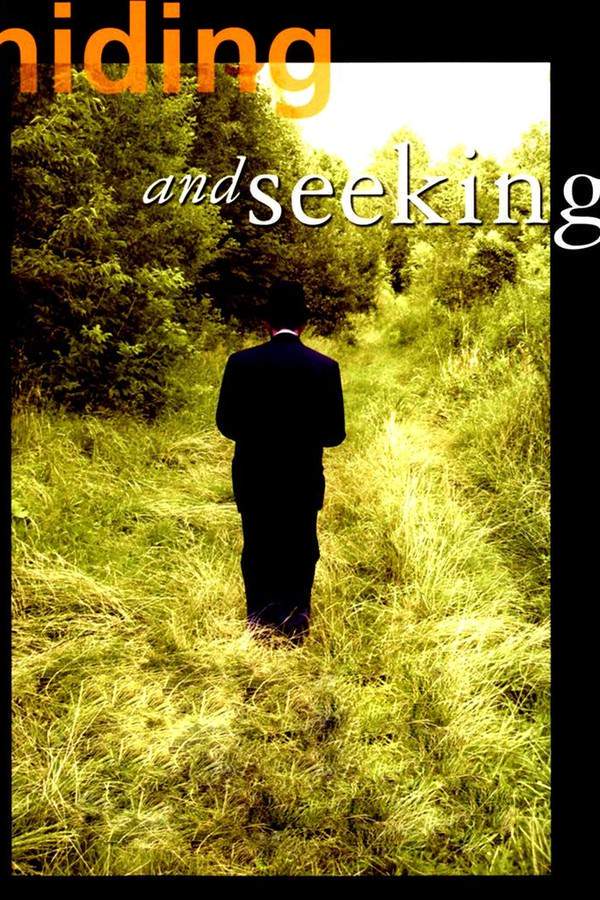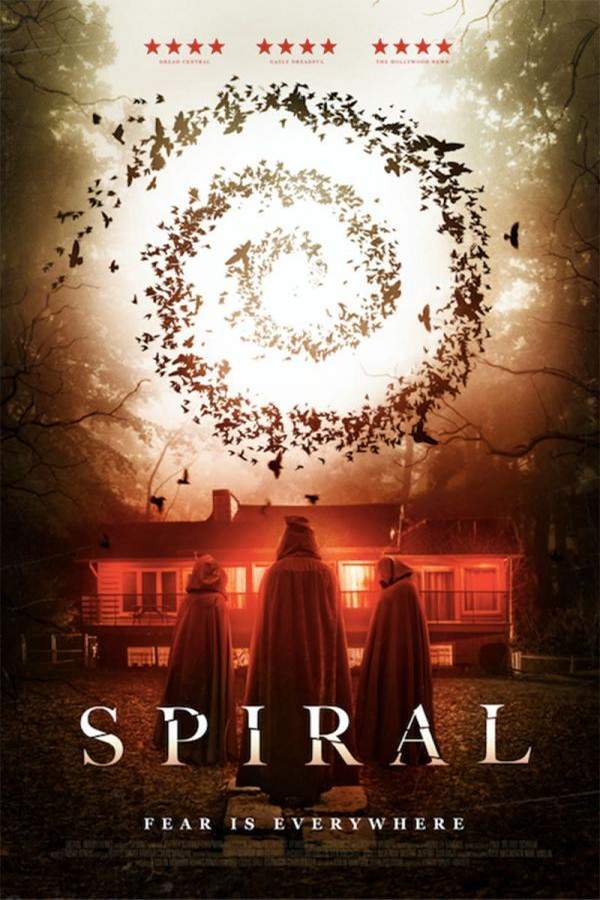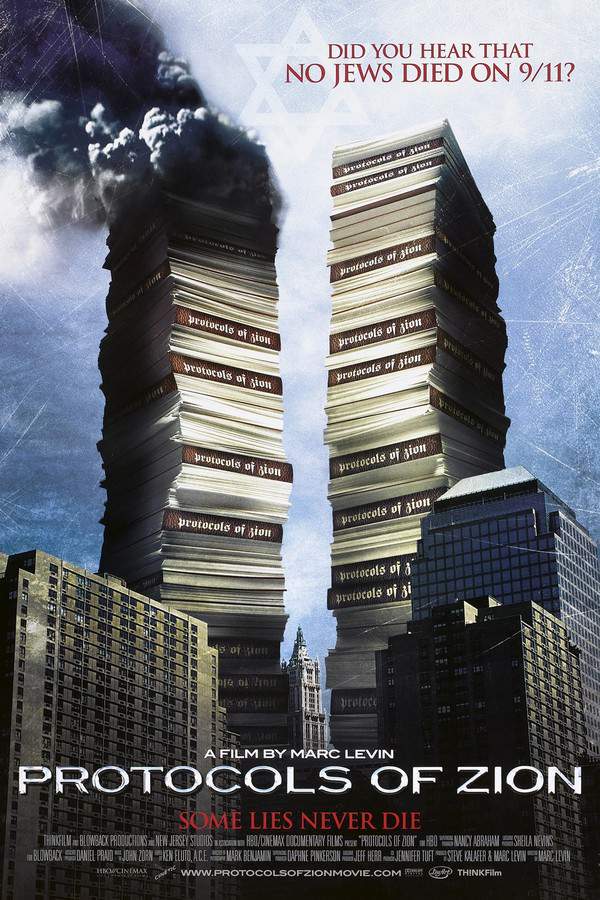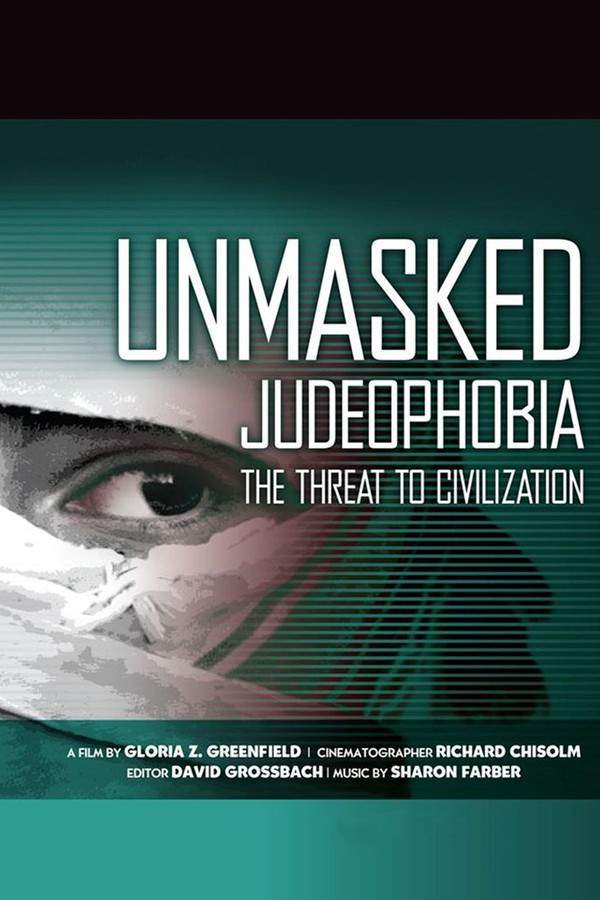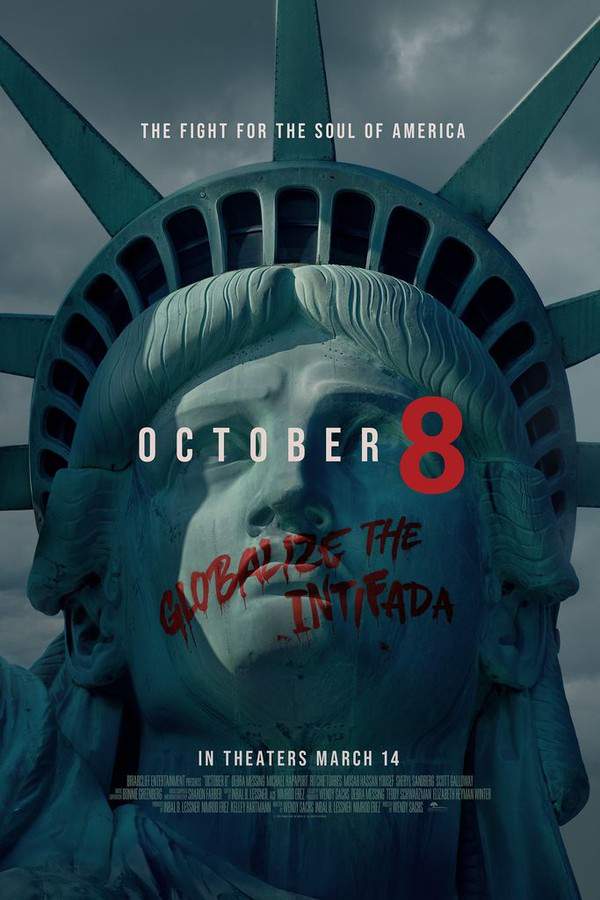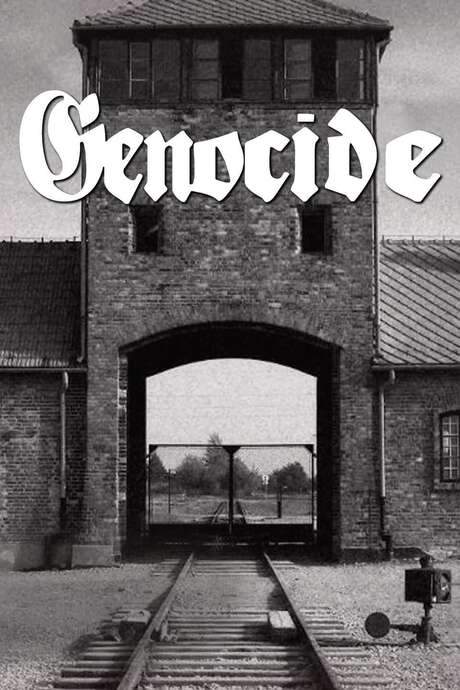Viral: Antisemitism in Four Mutations 2020

Filmmaker Andrew Goldberg explores the alarming rise of antisemitism in both America and Europe. The documentary investigates how hateful sentiments are spreading, identifying four different forms of prejudice and their impact on social harmony. Through insightful analysis, the film exposes the roots and consequences of this growing threat to societal cohesion.
Does Viral: Antisemitism in Four Mutations have end credit scenes?
No!
Viral: Antisemitism in Four Mutations does not have end credit scenes. You can leave when the credits roll.
Meet the Full Cast and Actors of Viral: Antisemitism in Four Mutations
Explore the complete cast of Viral: Antisemitism in Four Mutations, including both lead and supporting actors. Learn who plays each character, discover their past roles and achievements, and find out what makes this ensemble cast stand out in the world of film and television.
No actors found
External Links and Streaming Options
Discover where to watch Viral: Antisemitism in Four Mutations online, including streaming platforms, rental options, and official sources. Compare reviews, ratings, and in-depth movie information across sites like IMDb, TMDb, Rotten Tomatoes or Metacritic.
Ratings and Reviews for Viral: Antisemitism in Four Mutations
See how Viral: Antisemitism in Four Mutations is rated across major platforms like IMDb, Metacritic, and TMDb. Compare audience scores and critic reviews to understand where Viral: Antisemitism in Four Mutations stands among top-rated movies in its genre.

The Movie Echo Score
Overall, Viral offers a mixed documentary experience that effectively highlights urgent examples of antisemitism while lacking depth in analysis. The film’s vivid real-world cases and candid interviews bring a stark immediacy to its subject matter, but its pacing and structural setup feel uneven. The decision to position the director on camera adds a personal through-line that some viewers may find distracting rather than insightful. While the documentary’s intent and topical relevance are clear, the uneven execution tempers its overall impact.
The Movie Echo Score Breakdown for Viral: Antisemitism in Four Mutations

Art & Craft
In terms of art direction and cinematography, the film presents clear and focused imagery of its subjects but does not explore distinctive visual flair. The production design and editing facilitate a straightforward narrative flow, though transitions sometimes feel abrupt. While the camera work highlights key scenes with clarity, the overall aesthetic remains utilitarian rather than striking. Consequently, the documentary’s craft supports its content without elevating it.

Character & Emotion
When it comes to character and emotional resonance, the documentary provides candid interviews and personal testimonies that create emotional immediacy. The on-screen presence of the director offers a consistent guide but occasionally shifts focus away from the subjects. The narratives evoke empathy through firsthand accounts, yet the limited exploration of individual backstories restrains deeper connection. Overall, the emotional engagement is effective but not profoundly immersive.

Story & Flow
In terms of story and flow, the documentary delivers a clear thematic structure examining four manifestations of antisemitism, but it lacks a comprehensive historical framework. The pacing reflects concise segments on each mutation, yet the absence of contextual depth gives an impression of a superficial overview. Overall, the storytelling feels informative but underdeveloped.

Sensory Experience
When assessing sensory experience, the documentary maintains a measured sound design and a utilitarian musical score that underscore its serious tone. The audio layering and visual composition serve the subject matter without drawing attention to stylistic innovation. While the visuals effectively document interviews and events, they do not incorporate experimental or distinctive visual elements. As a result, the sensory presentation is serviceable but lacks memorable creative flair.

Rewatch Factor
Regarding rewatch value, the documentary’s impactful subject matter retains relevance but offers limited novelty on subsequent viewings. The concise examination of antisemitic mutations informs awareness yet does not uncover hidden layers upon closer inspection. The film’s structure and depth provide a single-view informational experience without additional insights for repeat audiences. Ultimately, the documentary’s lasting appeal resides in its topical importance rather than in refreshable content.

57
Metascore
2.0
User Score


86%
TOMATOMETER

0%
User Score

5.5 /10
IMDb Rating

20
%
User Score
Take the Ultimate Viral: Antisemitism in Four Mutations Movie Quiz
Challenge your knowledge of Viral: Antisemitism in Four Mutations with this fun and interactive movie quiz. Test yourself on key plot points, iconic characters, hidden details, and memorable moments to see how well you really know the film.
Exploring Anti-Semitism: A Viral Investigation: Test your knowledge on the documentary that examines the spread of anti-Semitism across four countries.
Who is the writer-producer-director of 'Viral: Antisemitism in Four Mutations'?
Andrew Goldberg
Viktor Orbán
Jeremy Corbyn
George Soros
Show hint
Full Plot Summary and Ending Explained for Viral: Antisemitism in Four Mutations
Read the complete plot summary of Viral: Antisemitism in Four Mutations, including all major events, twists, and the full ending explained in detail. Explore key characters, themes, hidden meanings, and everything you need to understand the story from beginning to end.
A vivid examination of modern-day anti-Semitism unfolds across four specific nations, as illustrated by writer-producer-director Andrew Goldberg. He presents compelling examples where anti-Semitism is either endorsed as official government policy or fueled by significant political movements.
In the United States, the narrative focuses on North Carolina state legislative candidate Andrew Walker and the alarming emergence of anti-Semitism intertwined with white supremacist ideologies and “America First” nationalism. The film thoughtfully incorporates footage of notable figures like Richard Spencer, showcasing the increasing legitimacy of white nationalism that gained momentum with the election of Donald Trump.
Transitioning to Hungary, the film sheds light on the rise of Viktor Orbán as a dominant political figure starting in 2010. His 2016 re-election campaign epitomized modern anti-Semitism, demonizing Hungarian émigré George Soros as an avatar of sinister Jewish capitalism, suggesting a wider conspiracy for global domination.
The narrative then shifts to Great Britain, where the film critiques Jeremy Corbyn’s stance against Israel. This became a breeding ground for anti-Semitism within the Labour Party, resulting in numerous Jews and their allies feeling compelled to leave, ultimately contributing to the Labour Party’s substantial electoral defeat in December 2019. This serves as a stark illustration of how anti-Semitism on the political Left resonates in the U.S. and beyond.
Finally, the documentary addresses the escalating wave of terrorism against Jews in France, predominantly perpetrated by Muslim immigrants hailing from the nation’s former colonies in North Africa. These individuals have often been radicalized by extremist groups, prompting horrific attacks on Jewish places of worship, schools, kosher markets, and even residential areas. A particularly harrowing account includes the brutal murder of an 87-year-old Holocaust survivor in her own home, a heartbreaking testament to the stark reality facing many Jewish communities today.
This powerful documentary serves as a vital reminder of the pernicious nature of anti-Semitism in various forms across different societies, urging viewers to acknowledge and confront these pressing issues.
Uncover the Details: Timeline, Characters, Themes, and Beyond!

Coming soon on iOS and Android
The Plot Explained Mobile App
From blockbusters to hidden gems — dive into movie stories anytime, anywhere. Save your favorites, discover plots faster, and never miss a twist again.
Sign up to be the first to know when we launch. Your email stays private — always.
Watch Trailers, Clips & Behind-the-Scenes for Viral: Antisemitism in Four Mutations
Watch official trailers, exclusive clips, cast interviews, and behind-the-scenes footage from Viral: Antisemitism in Four Mutations. Dive deeper into the making of the film, its standout moments, and key production insights.
Viral: Antisemitism in Four Mutations Themes and Keywords
Discover the central themes, ideas, and keywords that define the movie’s story, tone, and message. Analyze the film’s deeper meanings, genre influences, and recurring concepts.

Unlock the World of Movies with Our Comprehensive Wiki
Dive into our Movie Wiki for in-depth film encyclopedia entries, including cast biographies, production trivia, plot synopses, behind-the-scenes facts, and thematic analyses. Whether you’re researching iconic directors, exploring genre histories, or discovering hidden easter eggs, our expertly curated movie database has everything you need to fuel your cinematic passion.

Similar Movies To Viral: Antisemitism in Four Mutations You Should Know About
Browse a curated list of movies similar in genre, tone, characters, or story structure. Discover new titles like the one you're watching, perfect for fans of related plots, vibes, or cinematic styles.
Quick Links: Summary, Cast, Ratings, More

What's After the Movie?
Not sure whether to stay after the credits? Find out!
Explore Our Movie Platform
New Movie Releases (2026)
Famous Movie Actors
Top Film Production Studios
Movie Plot Summaries & Endings
Major Movie Awards & Winners
Best Concert Films & Music Documentaries
Movie Collections and Curated Lists
© 2026 What's After the Movie. All rights reserved.













